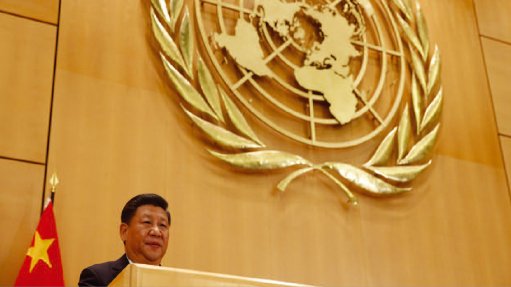
In January 2017, President Xi Jinping of the People’s Republic of China gave a keynote speech at the Palais des Nations of the United Nations in Geneva. Although world leaders regularly give addresses there, few other occasions have seen the UN impose restrictions such as those instituted on this occasion: before Xi’s arrival, UN officials closed parking lots and meeting rooms, and sent home early many of the office’s approximately 3,000 staff. The UN also barred nongovernmental organisations (NGOs) from attending the speech.
Just a few months later, in April, security officials at the UN headquarters in New York City ejected from the premises, Dolkun Isa, an ethnic Uyghur rights activist originally from China. Isa, who was accredited as an NGO participant, was attending a forum on indigenous issues when UN security confronted him and ordered him out of the building. No explanation was provided. Human Rights Watch queries to the UN spokesperson’s office elicited no substantive information about the incident.
The UN’s handling of these situations points to larger concerns about the treatment and protection of human rights activists critical of China as they seek to participate in UN human rights mechanisms—intended to protect the rights of all—and about China’s attempts to thwart UN scrutiny of its own human rights record.
As a UN member state and party to several international human rights treaties, China engages with the UN human rights system. It is a member of the Human Rights Council (the “Council”), participates in reviews of its treaty compliance, allows some UN independent human rights experts to visit China, and joins in assessments of its human rights record and those of other countries as part of the Council’s Universal Periodic Review (UPR) process.
Even as it engages with UN human rights institutions, however, China has worked consistently and often aggressively to silence criticism of its human rights record before UN bodies and has taken actions aimed at weakening some of the central mechanisms available in those institutions to advance rights. Because of China’s growing international influence, the stakes of such interventions go beyond how China’s own human rights record is addressed at the UN and pose a longer-term challenge to the integrity of the system as a whole.
Chinese officials have harassed activists, primarily those from China, by photographing and filming them on UN premises in violation of UN rules, and restricting their travel to Geneva. China has used its membership on the Economic and Social Council’s (ECOSOC) NGO Committee to block NGOs critical of China from being granted UN accreditation, and it has sought to blacklist accredited activists to bar their attendance. Behind the scenes, Chinese diplomats, in violation of UN rules, have contacted UN staff and experts on treaty bodies and special procedures (independent experts focusing on specific human rights issues), including behaviour that at times has amounted to harassment and intimidation.
Report by the Human Rights Watch